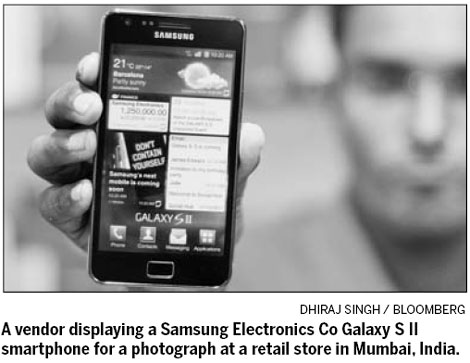Apple loses latest court fight over Samsung smartphone
Updated: 2011-12-05 07:56
By Joel Rosenblatt (China Daily)
|
|||||||||

SAN FRANCISCO - Apple Inc lost a request for a court order in its bid to block sales of Samsung Electronics Co's 4G smartphone and Galaxy Tab 10.1 tablet computer, according to a ruling that was posted on a court docket and then removed.
The iPad maker, in its lawsuit filed in federal court in San Jose, California, sought an order blocking Samsung from selling its Galaxy line of mobile devices products in the United States based on claims they violate Apple patents. The lawsuit is part of a legal battle between the companies being fought in 10 countries.
Samsung said in an e-mailed statement that the ruling confirms its long-held view that Apple's arguments lack merit.
"In particular, the court has recognized that Samsung has raised substantial questions about the validity of certain of Apple's design patents," the statement read. "We are confident that we can demonstrate the distinctiveness of Samsung's mobile devices when the case goes to trial next year."
The two companies have filed at least 30 lawsuits against each other, according to Samsung. The conflict began in April, when Apple filed the San Jose lawsuit claiming the South Korean company's Galaxy devices copied the iPhone and iPad.
'Blatant copying'
"It's no coincidence that Samsung's latest products look a lot like the iPhone and iPad, from the shape of the hardware to the user interface and even the packaging," Kristin Huguet, a spokeswoman for California-based Apple, said on Saturday in an e-mail. "This kind of blatant copying is wrong and, as we've said many times before, we need to protect Apple's intellectual property when companies steal our ideas."
According to the court docket in San Jose, the ruling, which was posted temporarily in error late on Friday, was later filed under seal.
The suits between the companies are made more complex by the their relationship: Samsung is the second-largest component supplier for Apple and gets about 7.6 percent of its total revenue from selling memory chips, displays and other components for the iPhone and iPad, according to Bloomberg data.
Bloomberg News











